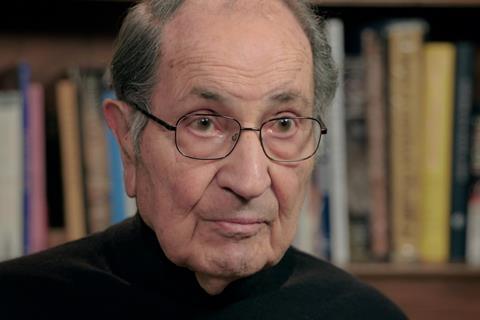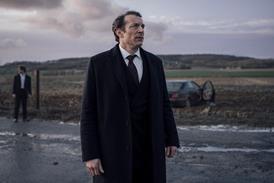Katharina Otto-Bernstein’s extensive documentary follows Sichel’s involvement in key moments of 20th-century history

Dir/scr: Katharina Otto-Bernstein. 2025. Germany/US. 107mins
CIA spymaster Peter Sichel died in February 2025, aged 102. His final testimony is a substantial interview reflecting on a life that left its mark on some of the key events of the 20th century, including the fight against Nazism, the formation of the CIA, and the Cold War. The Last Spy, from director Katharina Otto-Bernstein (Absolute Wilson), uses that interview as the backbone of a fascinating and wide-ranging history lesson that should make it a smart fit for documentary channels following its Munich premiere.
A fascinating and wide-ranging history lesson
Divided into chapter headings (’The Sky Is Falling’, ’A New World Order’ etc), the film offers a cradle-to-grave portrait of Sichel’s life, supplemented by extensive, well-chosen archive footage and interviews with an impressive selection of family members, historians, academics and journalists. There is enough material to fill a miniseries, never mind a single feature. Affectionately known as the Jewish James Bond to his friends in New York resort the Hamptons, Sichel is a dapper centenarian who glides into view on one of the stair lifts in his plush home. Sharp as the proverbial tack, he seems happy to discuss his life, work and belief the US is a country that makes no attempt to learn from its past mistakes.
Born in Mainz, Germany in 1922, Sichel had a comfortable upbringing in a family of wine merchants whose business interests flourished in Bordeaux, London and New York. It was his mother who first recognised the threat to Jewish families in Nazi Germany and wanted to leave the country in 1934. Later, they fled to Bordeaux and were interned as enemy aliens. Eventually, the family made it to New York and there is jaw-dropping footage illustrating the strength of support there for Nazism and Charles Lindbergh’s involvement with the America First Committee.
Sichel is constantly shaped by world events, volunteering for the US Army the day after Pearl Harbour. He was later recruited to join the Office of Strategic Services (OSS), which eventually became the CIA in 1947. Throughout The Last Spy, Sichel appears to provide straight answers to straight questions. He criticises General Patton as “a very stupid man” and laments the number of times credible intelligence was disregarded or ignored. Yet there is still something implacable about him. Despite being 15 miles north of Dachau when the war ended, Sichel claims to have known about the labour camps but not the death camps. “I did not know about the Holocaust,” he explains calmly. You wonder if Otto-Bernstein could have pushed him a little further.
The most compelling elements of Sichel’s story come when he is CIA bureau chief in Germany, during the initial stages of the Cold War. The US narrative of the post-war world order was framed as a fight between good and evil, with America as the righteous champion of democracy and Communism as the harbinger of violent oppression. Chapter-and-verse detail from Sichel shows how the US conspired to overthrow democratically elected governments in Iran and Guatemala in pursuit of their own political or commercial interests. The consequences of those actions live on today.
A loyal and obedient functionary, Sichel appears to have been the ultimate company man, but even he found it hard to reconcile the political rhetoric with the grubby reality of what he was being asked to orchestrate. He left the CIA in 1960, returning to the family wine business and enjoying huge international success with the Blue Nun brand.
When Sichel attempted to write his memoirs, the CIA returned the manuscript with endless suggested redactions. They argued that if a journalist had written the book it would have been considered mere speculation, but with his name attached it would have become confirmation. The Last Spy affords him the privilege of having the final word.
Production companies: Film Manufacturers Inc, KJ Entertainment
International sales: Dogwoof sales@dogwoof.com
Producers: Oleg Dubson, Sabine Schenk, Katharina Otto-Bernstein, Kathrin Lohmann
Cinematography: James Carman
Editing: Matthew Cohn, Bernadine Colish
Music: David Steinberg
























